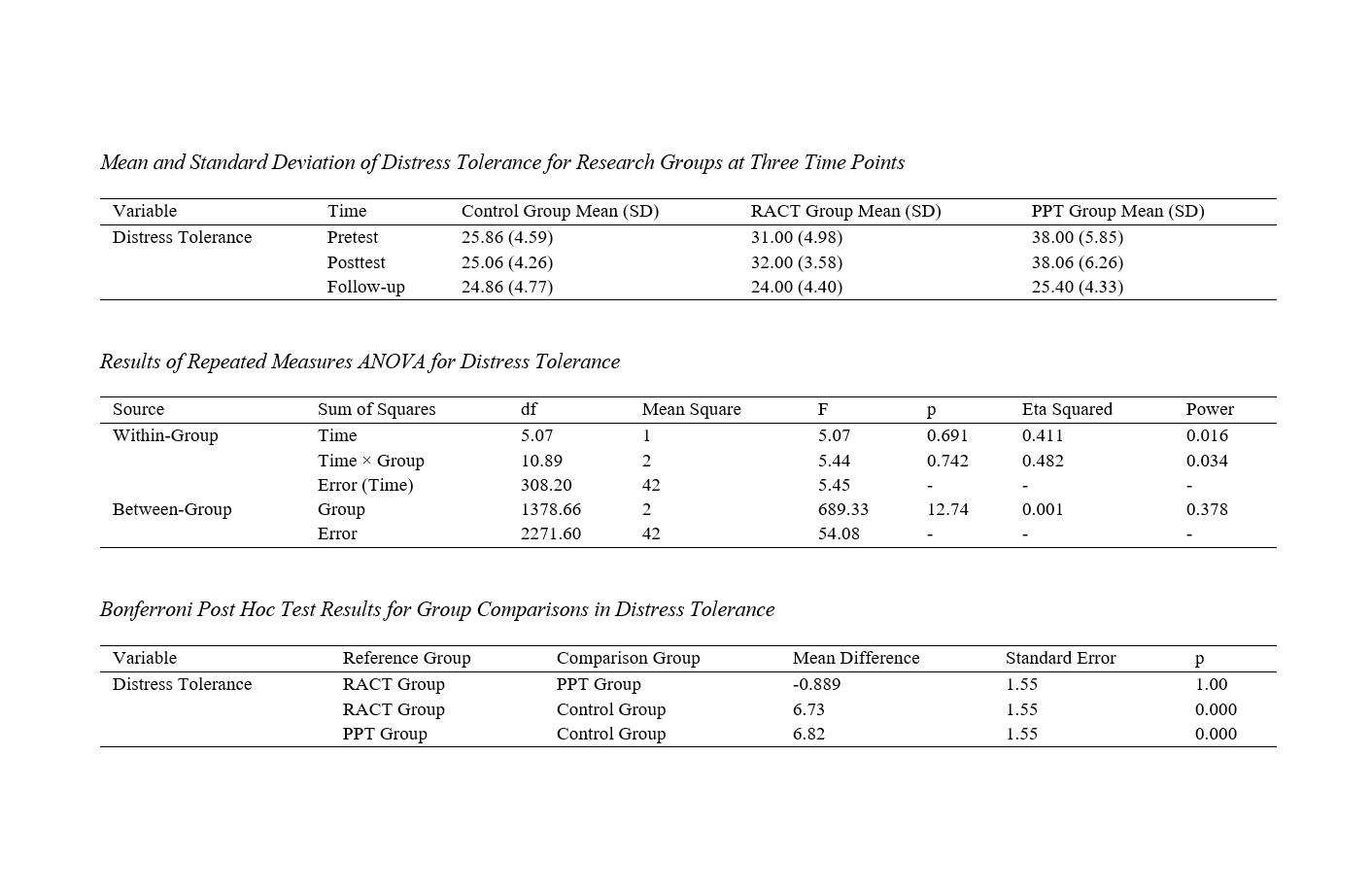Comparing the Effectiveness of Realistic Acceptance and Commitment Therapy and Positive Psychotherapy on Distress Tolerance in Divorced Women of Baghdad
Keywords:
Realistic Acceptance and Commitment Therapy, Positive Psychotherapy, Distress Tolerance, Divorced Women, BaghdadAbstract
Objective: This study aimed to compare the effectiveness of Realistic Acceptance and Commitment Therapy (RACT) and Positive Psychotherapy (PPT) on distress tolerance in divorced women of Baghdad.
Methods and Materials: The research employed a quasi-experimental design with a pretest-posttest-follow-up structure, including two experimental groups and one control group. The statistical population comprised all divorced women in Baghdad, from which 45 women were selected using convenience sampling based on inclusion and exclusion criteria and were randomly assigned to the study groups. While the control group remained on the waiting list, the two experimental groups received 10 sessions of RACT training (Afshari et al., 2022) and PPT (Elmi Manesh & Zhaleh, 2018). All participants were assessed using the Distress Tolerance Scale by Gaher and Simons (2005) before the intervention, immediately after the intervention, and 45 days post-intervention. Data were analyzed using descriptive statistics (mean and standard deviation) and inferential statistics (repeated measures ANOVA).
Findings: The findings indicated that both methods effectively improved distress tolerance, with RACT demonstrating greater effectiveness than PPT.
Conclusion: Based on these results, both approaches can be utilized to enhance distress tolerance in divorced women in Baghdad.
Downloads

Downloads
Additional Files
Published
Submitted
Revised
Accepted
Issue
Section
License
Copyright (c) 2024 Heba Hassan Jassim Jassim (Author); Ali Mehdad; Saad Naeem Radhawi, Mohsen Golparvar (Author)

This work is licensed under a Creative Commons Attribution-NonCommercial 4.0 International License.









